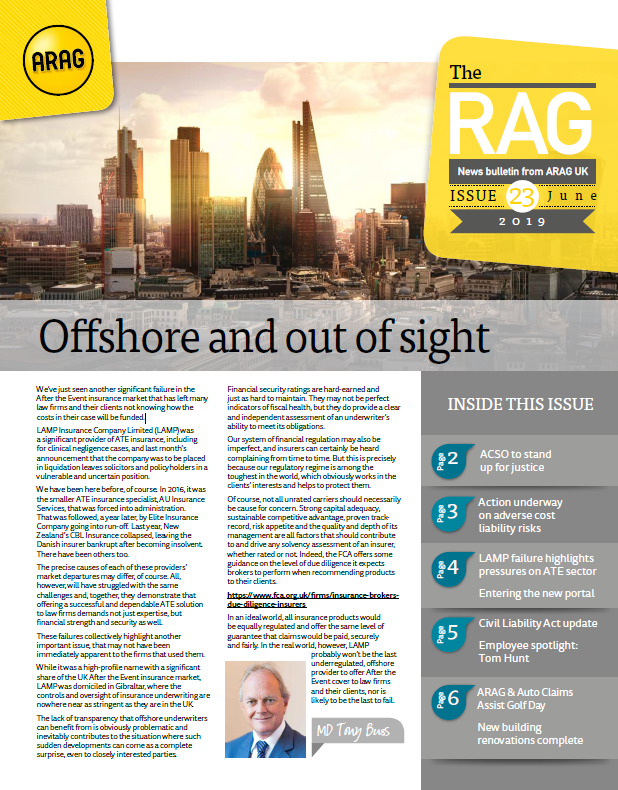
Action Underway on Adverse Cost Liability Risks
Originally published in the RAG #23 June 2019
The principle of insurance is that a spread of risks allows premiums to be averaged with poor risks balanced by better ones. With ATE business, this means insuring a basket of cases from the outset. The system begins to fall apart if there is a long gap between accepting a Conditional Fee Agreement (CFA) and getting the case insured. There is a clear link between the insurer’s liability to pay claims and delays in insuring cases after the CFA has been entered into.
Cherry-picking the good risks out of the basket means that those remaining later in the process turn out to be the ones that are more likely to incur higher claims costs. We are therefore changing our practice by reducing the acceptance criteria from new firms for both Public Liability and Occupier’s Liability, thus ensuring premiums can be retained at a level that reflects the entire basket of cases. We therefore require all new firms to insure cases within 4 weeks of entering into a CFA with the claimant. Whatever class of business you transact, it is always best to insure every single case from day 1.
There are also some rating changes in the pipeline. In a further move to keep premiums competitive, PL and OL cases will attract a new rating structure based on three bands of damages: details will be finalised shortly and plenty of notice will be given on a proposed implementation date. Anticipate a damages based rating scale that will determine premiums. Most likely these will be for cases below £10,000, from £10,000-£25,000 and for those over £25,000.
Disclaimer - all information in this article was correct at time of publishing.



